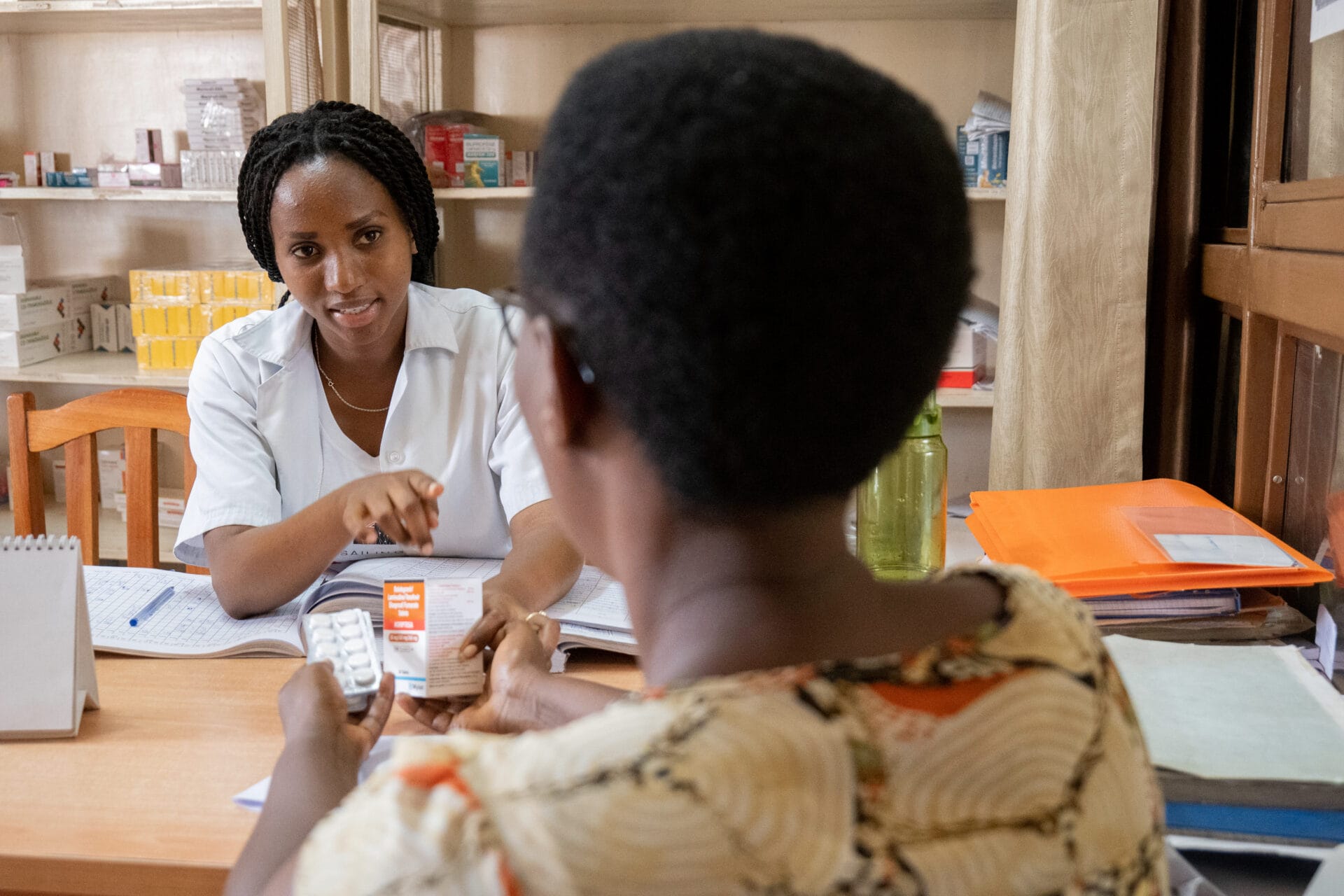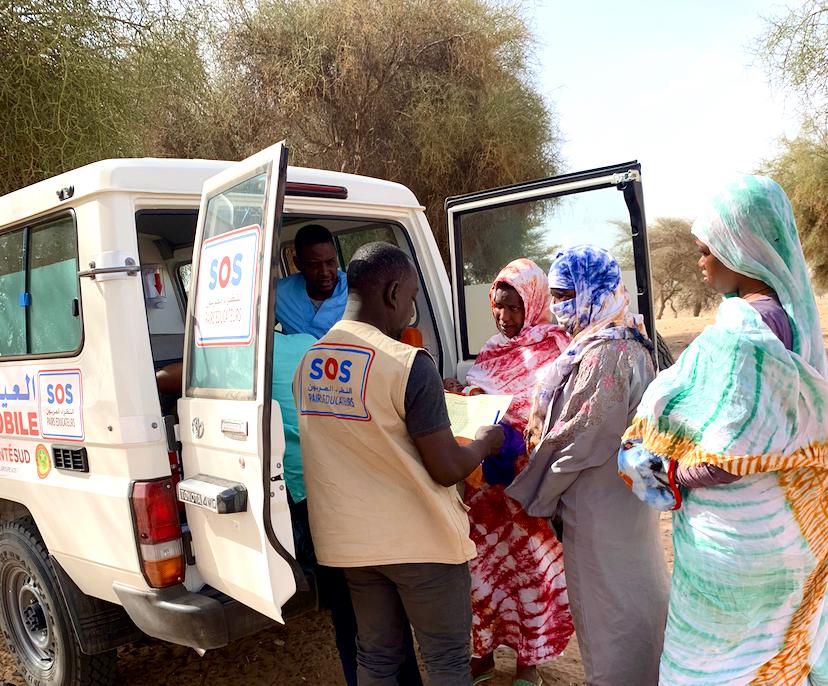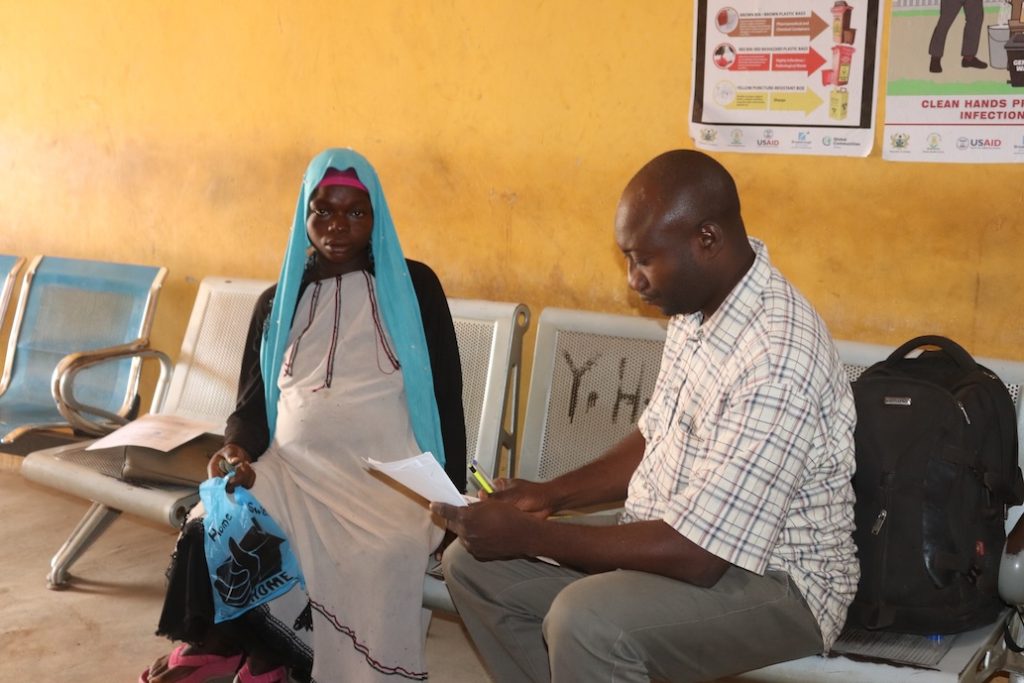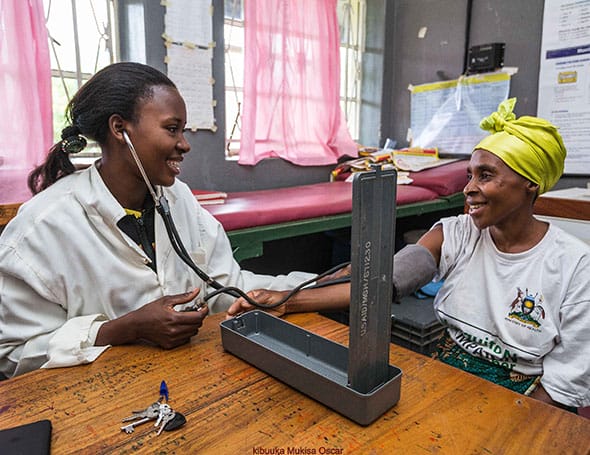L’Initiative is aware of the importance of gender-related factors of vulnerability, which are at the root of health inequalities. As a result, we strive to integrate these issues into the projects we support and the expertise we call upon. Health systems are fairer and stronger when they integrate the specific needs of all, including men, women, cisgender and transgender people, and any individuals who don’t identify with gender norms.
Gender equality is a condition for progress in global health
Individuals’ health and their access to health services are largely determined by the social gender norms that are applied to them. Depending on the geographic area and social context, healthcare pathways differ for women, men, and transgender and cisgender people. For example, power relations within a couple may hinder access to health services.
Gender inequalities are reflected in other, even more pressing issues, including sexual violence, early marriage, poor access to information, low negotiating ability on condom use, etc. Similarly, gender-based discrimination (including family, cultural, and political constraints) can represent a major barrier to screening, to the quality of the care experience, to compliance with treatment, and even to the organization of professional health activities.
Our strategy for gender-sensitive projects and interventions

France is strongly committed to gender equality, which is at the heart of its feminist diplomacy. L’Initiative fully supports this approach, in line with France’s international strategy for gender equality and its international strategy on sexual and reproductive health and rights (SRHR). This commitment involves supporting more programs which integrate gender-based factors of vulnerability (for women, men, and cisgender and transgender people), particularly factors relating to the HIV/AIDS, malaria, and tuberculosis pandemics.
Leading by example
To lead by example, we have adopted new internal practices. We strive to mainstream gender equality in the content of our technical assistance missions. We work to achieve a better balance between the women and men involved in our missions. Finally, our aim over the coming years is that 75% of the projects we support will include at least one objective related to reducing gender inequalities.
Our tools and resources to mainstream gender in our interventions
We produce and communicate knowledge about gender mainstreaming in health strategies, which we share through various channels:
- Webinar : L’Initiative has developed a webinar aimed at the experts we work with, to help them integrate gender into technical assistance missions and projects. The webinar consists of three modules: “Gender and Pandemics,” “Gender and Types of supports,” and “Gender and Mission methodology.”
- MOOC : Prepared by Expertise France, l’Agence Française de Développement, and the French Ministry for Europe and Foreign Affairs, this online course includes nine one-hour modules. It is aimed at helping international development professionals to change unequal gender relationships through their professional practices, and to systematically mainstream gender into their activities.
- Guide / Toolkit. : L’Initiative has devoted one section of its guide The meaningful integration of community health workers and key populations to mainstreaming community health, gender, and human rights.
- DAC classification.: L’Initiative applies the “gender equality marker” system developed by the OECD Development Assistance Committee (DAC) to all projects it evaluates. A score between 0 and 2 indicates the extent to which gender has been taken into account in public development assistance.
Projects promoting gender equality
France is committed to ensuring that, by 2025, 75% of bilateral socially responsible and sustainable investments will be allocated to projects incorporating gender equality as a primary or significant objective, and 20% will be allocated to projects with gender equality as their primary objective.
L’Initiative subscribes to this dynamic by funding around twenty programs in which gender equality is the starting point of the project, its primary objective, and represents the majority of expected outcomes. From West Africa to Lebanon and Myanmar, from the fight against tuberculosis to the fight against HIV/AIDs, gender equality is a priority in the support we provide.

The PluriElles project seeks to improve access to local healthcare, including sexual and reproductive health services, while strengthening the fight against pandemics in two rural regions of Madagascar. This initiative addresses concerns over a potential rise in HIV prevalence, an increase in tuberculosis incidence, a growing malaria-related mortality rate, and cervical cancer becoming a major cause of death among women. To achieve this, 25 midwives are being recruited to work in community birthing centers. At the same time, the project reinforces referral healthcare facilities and provides support to local communities in the areas where the midwives are stationed.
In Ghana, only a minority of individuals with mental health needs have access to care and treatment. These mental health challenges, combined with barriers to care, lead to many women and girls missing out on essential maternal and child health services. In response, BasicNeeds implements a project to strengthen community health systems to enhance integrated, people-centered HIV, tuberculosis, sexual and reproductive health focusing on the most vulnerable women and adolescents.


